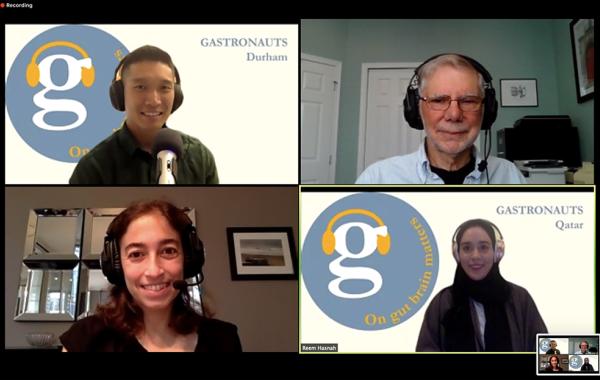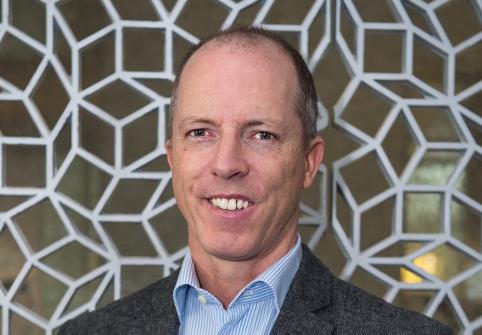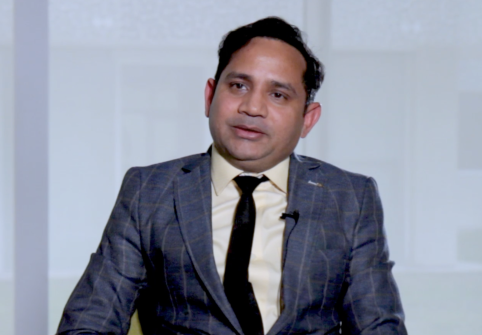People Student Spotlight: CHLS Student Delighted to Join ‘Gastronauts’
Reem Hasnah, who is studying for a Master of Science degree in Biological and Biomedical Sciences at the College of Health and Life Sciences, has become a co-host of Gastronauts, the podcast with the mantra ‘where the gut meets the brain’.
Now in its second season, the podcast has seen over 2,000 plays and has more than 100 subscribers. The 30-minute episodes highlight the choices, philosophies, and underlying drive of humans devoted to the discovery of gut-brain matters.
Reem is delighted to be joining Gastronauts and spoke to us about her appointment, her aspirations, and HBKU.
How excited are you about becoming a co-host on Gastronauts?
To be honest, I am thrilled to become a part of the Gastronauts family. It was a great surprise when Dr. Diego Bohorquez, the founder of Gastronauts, and Dr. Luis Saraiva, an Adjunct Assistant Professor with CHLS, offered me the role. Of course, it was like a dream come true, so I did not hesitate to accept. This is a great opportunity.
What qualities do you feel you will bring to the podcast?
I believe I will bring many qualities, including the ability to ask valid scientific questions and encourage engagement with science outside the lab. It will also allow me to expand my scientific network and to get to know scientists from different regions of the world. Not only this, but it will also make me a better presenter and speaker, and help me expand my future career plans.
Were you an avid viewer of Gastronauts before you became a co-host, and why?
Yes, I was. Gastronauts is a great platform to listen and learn about the latest scientific outcomes and the way they present science is so unique. It is also a place to hear some brilliant career advice.
As a scientist yourself, can you tell us how Gastronauts helps the local science community?
Gastronauts helps to convey the message of how important science is to our community in a format that everyone can understand. The way the podcast is designed is very unique and very helpful, especially for younger people in the field as it gives them scientific knowledge and valuable career advice from experts.
Tell us about producing the episodes?
The episodes involve a lot of work and meetings between Peter Weng (host of Gastronauts) and I. We used to meet twice a week to discuss the format and talk about what and how to ask the different questions. Getting this podcast ready takes a lot of effort from the rest of the Gastronauts team, as without them we would not be able to create the buzz that we have in our podcasts.
How do you feel your HBKU education has helped to prepare you for this role?
The way the classes are constructed at HBKU and the way we discussed scientific papers and presented work helped me in the way I read and come up with scientific questions and in the way I now view a scientific paper. One of my favorite classes was Cell Biology by Dr. Henning Horn. It was so interesting, and I really enjoyed it.
What are your aspirations for the future?
I am very excited about the future. Science is a field that is full of surprises and opportunities that we need to work toward. With this podcast, I see something amazing happening, especially in how people see and present science. I am sure that in one of our future episodes we will invite some of HBKU’s talented scientists.
One day I would like to have my own lab that studies gut-brain communication. To do so, I need to complete my PhD and I look forward to doing that at HBKU as it is an exceptional university with great professors.





